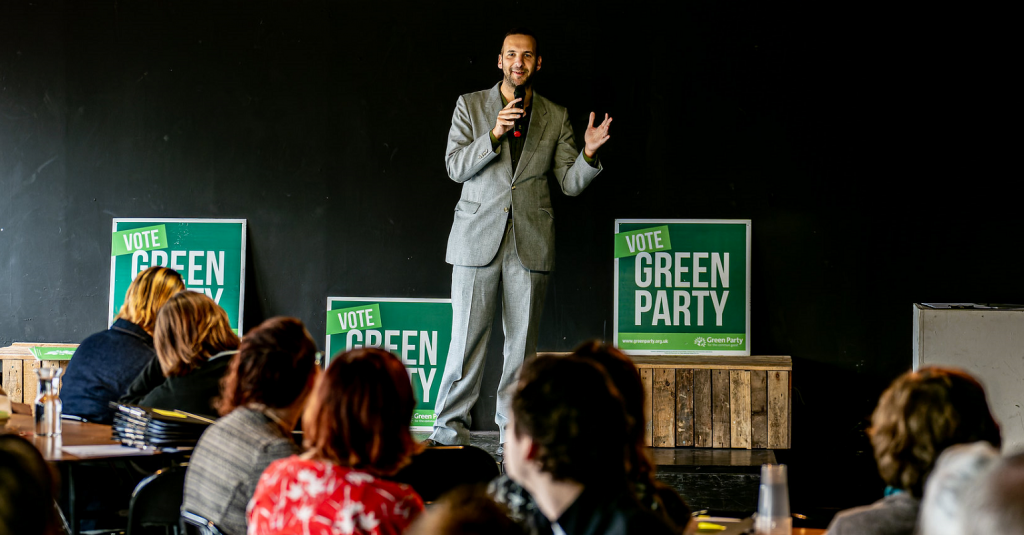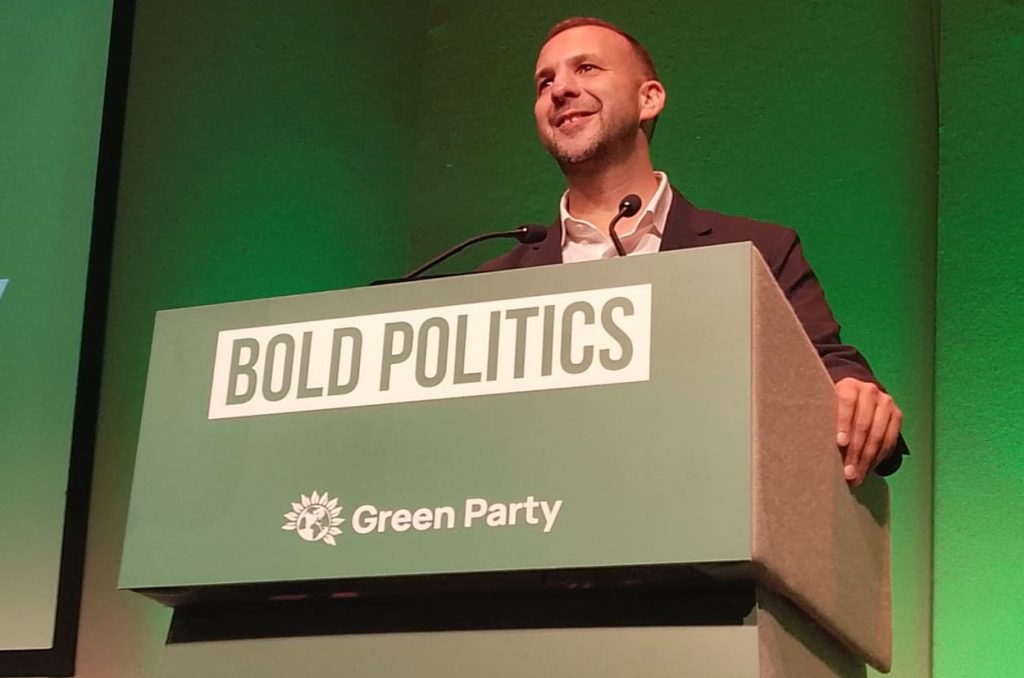Why Zack Polanski should be the next Green Party leader

In 2010 I stood in two elections on the same day. One was carefully targeted and delivered Surrey’s first Green councillor by 600 votes. The other, a long-shot attempt to be elected as the first Green MP in Surrey, in the concurrent General Election (I came last!).
That contrast taught me something important: targeted campaigns work, and they take real discipline. We kept winning re-elections in our original ward almost every year, but couldn’t break through elsewhere. With our small local party, winning a second ward seemed as hard as winning the first.
It wasn’t until 2018, when we finally had enough people and structure to target two wards at once, that we broke through in our second ward.
The 2019 turning point
The real surprise came the following year. In the 2019 all-out elections across the borough, we focused on our two wards, going from three to six councillors. But we didn’t just scrape through — we won twice as many votes as the Conservatives in our target wards.
Even more striking, we came second in almost every other ward, often losing by only a handful of votes. Many of these near-misses were from “paper candidates” confirmed at the last minute, with no campaigning outside our target wards.
We weren’t alone. Across the country, Greens were making similar leaps. In nearby Horsham, two councillors were elected without full campaigns. Something in the political weather had changed.
In April 2019, Extinction Rebellion staged its largest actions yet, occupying central London. Over the Easter weekend, even one of our local ministers camped at Marble Arch. Days later, Parliament declared a climate emergency. That surge in climate awareness helped make the Green vote suddenly more viable, in a way we hadn’t seen since the 1989 European elections.
Extinction Rebellion’s impact was different from traditional NGO lobbying — it openly challenged the political system itself. That mattered, because when national movements shake up politics, local Greens can ride that momentum to far greater success.
“When movements shake the system, Greens can turn that energy into real wins — but only with leaders who connect activism to electoral strategy.”
Why this matters for Green leadership
This lesson is central to our choice of the next Green leader. We have outstanding candidates in MPs Ellie Chowns and Adrian Ramsay, and London Assembly Member Zack Polanski. All three could do the job. But after hearing hustings and reading candidates’ answers to Green House’s questions, I pledged my support to Zack.
The reason is simple. The surge of 2019 showed that we win most when our electoral work is linked to wider movements for change. To make the most of that, our leadership must work both inside and outside the political system — combining practical campaigning with a willingness to challenge the status quo.
We need leaders who can inspire hope, articulate systemic change, and still understand the hard, focused work of winning local elections. Leaders who can collaborate with campaigners outside the party while giving our MPs and councillors the backing to challenge from within.
Zack’s strength lies in painting the big picture — linking the Green Party’s mission to broader social movements and deep green campaigns, amplifying their demands, and making politics feel relevant to people who’ve lost faith in it. This is not a replacement for the diligent, detailed work our MPs and councillors do. It’s the essential complement.
Facing the scale of change needed
Our political and economic system is the root barrier to tackling climate change and inequality. Too often, even progressive parties shy away from challenging it directly. Some Greens abroad have hesitated to use the phrase “system change” for fear of misunderstanding. But avoiding the term won’t make the need any less urgent.
We must be the radical outliers who deepen democracy and offer a compelling alternative to the rhetoric of Farage and other right-wing populists. That means mobilising not just voters, but activists. It means building a politics that demands social, environmental and democratic transformation from the ground up.
The crises we face — wealth inequality, climate breakdown, and social fragmentation — are products of a failed neoliberal ideology. The Green Party cannot solve them alone. We need alliances with communities, trade unions, campaign groups, and others pushing for justice.
We also need to be ready for very different scenarios. We need to face the possibilities both of Greens as part of the next UK Government and the complete inadequacy of this opportunity unless we also remake our electoral democracy. A voting system that rewards parties committed to endless growth will keep forcing voters into bad choices, and leave space for manipulation by vested interests.
The leadership we need now
To meet these challenges, we need leadership that inspires hope in the face of cynicism, speaks truth to power with compassion, and mobilises people who’ve given up on politics. We need leadership that can work within existing systems to improve them, while also pushing to replace what’s broken.
Turning widespread political resignation and apathy into unbridled hopeful activism needs as many leaders as we can muster. And that is why I back Ellie and Adrian to be part of the quartet that will work from the inside out, to play the music desperately needed for parliament to dance to a different tune.
And why I back Zack to spearhead the challenge from the outside in, to ensure we have the scale of public support, activism and belief we so crucially need, as our new, public facing leader of the Green Party.
Jonathan Essex is Green leader of the opposition on Reigate and Banstead Borough Council, County Councillor, and member of Green House, researching political theories of change with Professor John Barry of Queen’s University.
Image credit: Rob Brone – Creative Commons




Leave a Reply